Pet Dental Care: Tips for Healthy Teeth and Gums
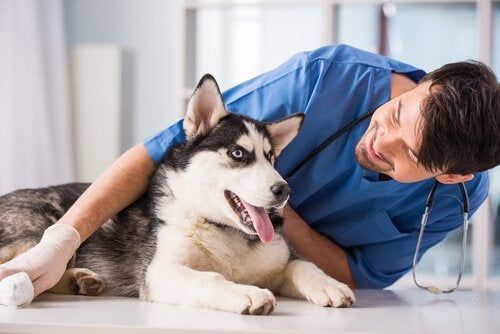
There is a tendency for pet owners to place a great deal of emphasis on food, exercise, and grooming. Still, one aspect overlooked is pet dental care. Like humans, pets can suffer from dental issues that impact their health and well-being. Without proper care, plaque and tartar can build up, leading to oral diseases, infections, and even systemic health issues like heart disease, kidney problems, etc.
Many pet owners are unaware of the importance of regular veterinary hygiene for their pets, which often results in preventable dental issues. Research shows that over 80% of dogs and 70% of cats show signs of oral disease by three years old. The good news is that consistent pet dental care can prevent most oral health problems and improve your pet’s quality of life.
In this guide, we’ll explore pet dental care in depth. We’ll also discuss the importance of mouth health, how to spot potential issues, actionable at-home dental care tips, and when it’s time to visit the vet.
The Importance of Pet Dental Care
Dental health isn’t just about having an attractive smile; it’s essential to your pet’s health. Plaques and tartar build-up can lead to many oral health issues, but it doesn’t stop there. Untreated dental problems can also impact other body parts, leading to serious conditions that could affect your pet’s heart, kidneys, and liver. Let’s look at why oral hygiene for your pets is critical.
1. Prevents gum disease and tooth loss
Dental disease often begins with gingivitis, an inflammation of the gums caused by plaque accumulation. Eventually, gingivitis can progress into periodontitis, which affects the teeth and bone surrounding them. If left untreated, the infection can cause tooth loss and pain, making it difficult for your pet to eat and drink.
2. Reduce Systemic Disease Risk
Oral infections don’t stay confined to the mouth. Bacteria caused by gum disease can enter the bloodstream and cause serious problems for heart, kidney, and liver functions. This can lead to life-threatening conditions in severe cases, so preventive dental care is essential for overall pet health.
3. Freshens the breath.
One of the most noticeable signs of Pet dental care problems is unattractive breath. While some degree of “pet breath” is normal, foul-smelling breath is a red flag for potential oral issues. It is important to brush your pet’s teeth and provide dental chews to improve their breath and oral hygiene.
4. Enhances the Quality of life
Pets with dental issues often experience pain and discomfort. This can lead to behavioral changes such as irritability, reluctance to eat, and even aggression Proper dental care keeps your pet’s teeth and gums healthy, ensuring they can eat comfortably and live a happy, active life.
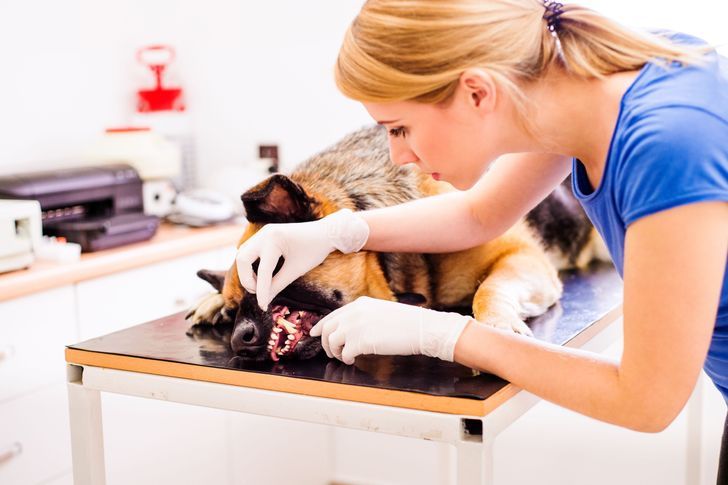
Signs Your Pet Needs Dental Care
The importance of knowing when your pet needs veterinary care cannot be overstated. Dental problems are subtle, and pets often don’t show signs until they become severe. Here are some common signs of dental need:
An ill-smelling breath (halitosis)
There is nothing abnormal about minor “pet breath,” but pronounced breath can indicate dental diseases, such as gum infection or tartar buildup.
Yellow or brown teeth
Plaque and tartar build-up discolors your pet’s teeth. Yellow or brown stains indicate your pet’s oral hygiene needs attention.
Red, swollen, or bleeding gums
Inflammation, redness, and bleeding in the gums are signs of gingivitis or early-stage gum disease.
Difficulty eating or chewing
If your pet has trouble eating or chewing, it could be due to painful teeth or gums. This is especially common with broken or infected teeth.
Excessive drooling
An excessive amount of drooling may indicate an oral problem such as pain, infection, or tooth problems.
Behavioral changes
You should contact your veterinarian if your pet becomes more irritable, avoids being touched around the face, or shows signs of discomfort when eating. These could be signs of dental problems.
At-Home Pet Dental Care: Daily Habits
Like humans, pets require regular oral care to maintain a healthy mouth. Luckily, establishing a daily dental routine for your pet doesn’t have to be difficult. Here are some essential at-home pet dental care practices you can incorporate into your routine:
Brushing Your Pet’s Teeth
Brushing your pet’s teeth is the most effective way to prevent plaque and tartar buildup. It might take time for your pet to get used to this routine, but it’s one of the best investments you can make for their health. Here are a few tips to get started:
- Choose the right tools: Use a toothbrush and toothpaste specifically designed for pets. Never use human toothpaste, as it contains harmful ingredients to pets.
- Start slow: If your pet is new to brushing, gradually introduce them to toothpaste and the brushing motion. You may start by gently rubbing their teeth and gums with your finger.
- Brush 2-3 times a week: Brushing your pet’s teeth at least two to three times weekly will help reduce plaque and tartar buildup.
Dental Chews and Toys
Dental chews and toys are a great way to support your pet’s dental health. Chewing on certain materials can help scrub the teeth and massage the gums, reducing the accumulation of plaque and tartar. Here are some options:
- Dental chews: These are specially designed to clean teeth and freshen breath. Look for chews endorsed by the Veterinary Oral Health Council (VOHC) for best results.
- Chew toys: Hard rubber toys and other safe chewable items can help scrape off plaque and strengthen your pet’s teeth.
- Toys for specific needs: Some toys are designed to help with the cleaning of molars or other hard-to-reach areas, so choose a variety that suits your pet’s needs.
Dental Diets and Treats
Some pet foods are specifically formulated to help with oral health. These foods are designed to reduce plaque buildup and improve overall dental hygiene. You can also choose dental treats that help reduce plaque and freshen your pet’s breath.
- Dry food: While wet food can be easier for pets, it can sometimes contribute to plaque buildup. Dry food, on the other hand, helps scrape plaque off the teeth as your pet chews.
- Dental-specific treats: Many treats are designed to reduce tartar buildup and freshen breath. Look for treats that a veterinarian endorses.
Water Additives
Water additives can help reduce plaque and tartar buildup while freshening your pet’s breath. Add a small amount to your pet’s water bowl, and they will be receiving dental benefits with every drink.
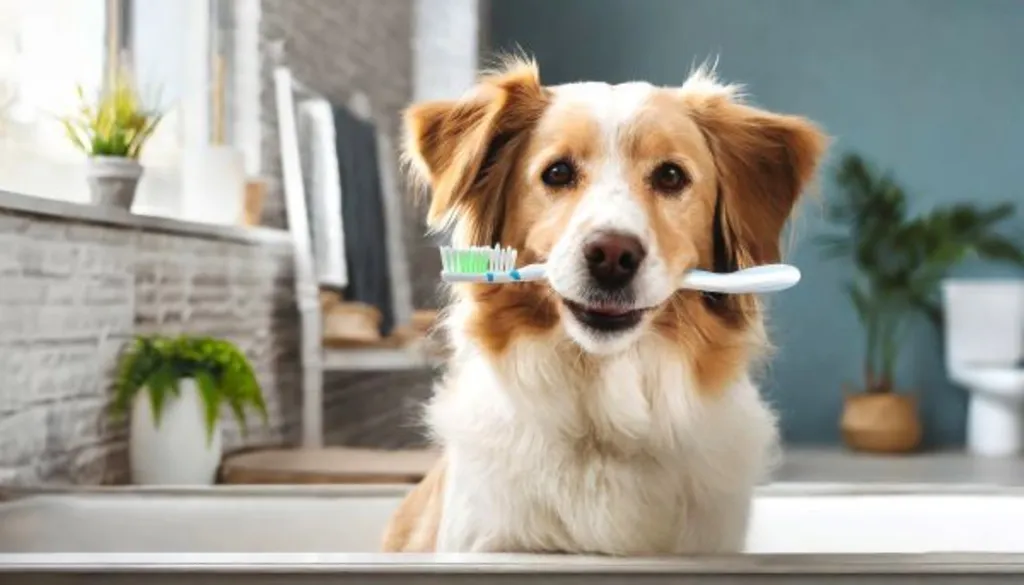
Professional Pet Dental Care: When to See the Vet
Although at-home Pet dental care is essential, having your pet’s teeth professionally cleaned by a veterinarian is important. Just like humans, pets need professional cleaning to remove plaque and tartar from hard-to-reach areas, such as beneath the gumline. Here’s why professional care is important:
Routine Checkups
Your veterinarian can thoroughly examine your pet’s teeth and gums, checking for issues that are not visible to you. They can also recommend a cleaning schedule that suits your pet’s needs.
Dental X-Rays
In some cases, a vet may recommend dental X-rays to assess the health of your pet’s teeth beneath the surface. X-rays can help identify tooth root infections, bone loss, and other underlying dental problems.
Scaling and Polishing
During a professional cleaning, your vet will scale away plaque and tartar buildup, then polish the teeth to remove any rough surfaces where plaque can accumulate. This cleaning is far more thorough than what can be achieved at home.
Common Pet Dental Health Problems
Like humans, pets can suffer from various dental health issues. Here are a few of the most common problems:
Periodontal Disease
Periodontal disease is the most common dental issue in pets. It occurs when plaque turns into tartar, inflaming the gums. Left untreated, this can lead to tooth loss and painful infections.
Tooth Resorption
This is a painful condition where the tooth’s structure breaks down, usually requiring extraction.
Broken Teeth
Pets are prone to tooth fractures, especially if they chew on hard objects like bones or stones. These broken teeth can cause pain or infection and may need to be extracted.
Oral Tumors
Oral tumors can develop in pets, particularly older ones. These tumors can be benign or malignant and may require surgery or other treatments.
Preventing Pet Dental Problems: Tips for Long-Term Care
Preventing dental issues is always easier than treating them. Here are some tips for long-term pet dental care:
Feed a Balanced Diet
Ensure your pet eats a nutritionally balanced diet that supports good oral health. Some foods are specifically designed to help reduce plaque and tartar buildup.
Hydration is Key
Encourage your pet to drink plenty of water. Adequate hydration is essential for overall health, including oral health.
Monitor Their Teeth and Gums Regularly
Check your pet’s teeth and gums regularly for signs of problems. Early detection can prevent more serious issues from developing.
Stay Consistent with Brushing
Brushing your Pet dental care regularly will prevent plaque buildup and reduce the risk of gum disease. Make it a part of your pet’s routine to ensure their oral health stays in shape.
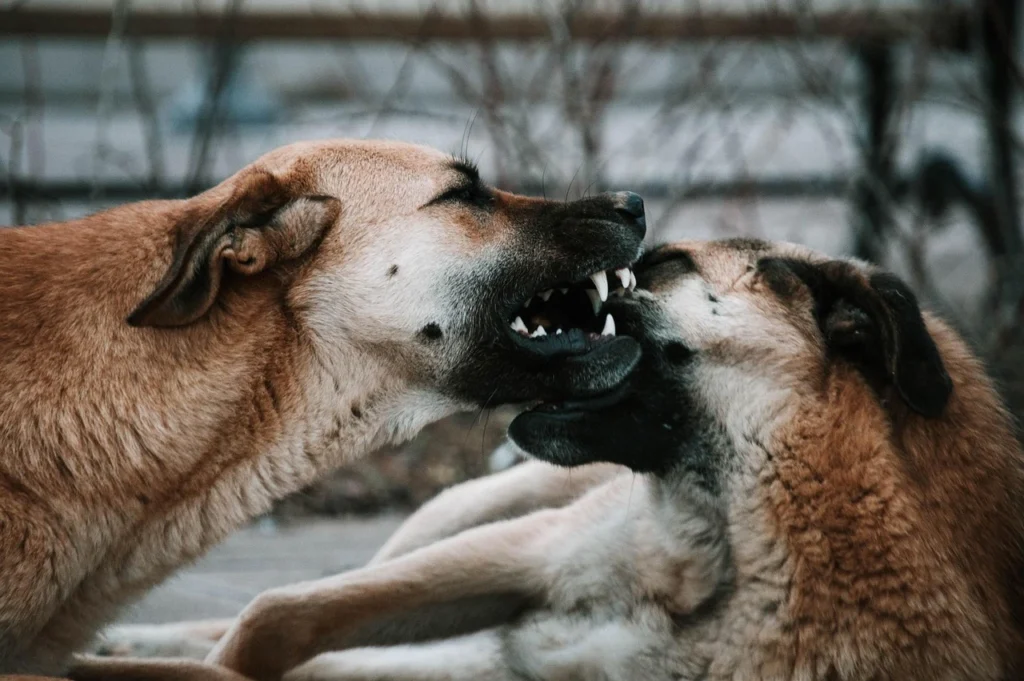
Conclusion:
Pet dental care is a vital aspect of your pet’s overall health that should never be overlooked. Just like humans, pets can develop dental problems, leading to serious health issues if left untreated. By establishing a consistent dental routine at home, which includes regular brushing, dental chews, and the right diet, you can significantly reduce the chances of dental disease. These simple, every day habits can go a long way in keeping plaque and tartar buildup at bay, preventing gum disease, and maintaining healthy teeth.
However, at-home care alone is not enough. Scheduling routine vet visits for professional cleaning and check-ups is essential for maintaining your pet’s dental health. During these visits, your vet can perform deeper cleanings, take dental X-rays to identify hidden issues and detect any potential health concerns before they become severe. Recognizing the early signs of dental problems, such as bad breath, swollen gums, or difficulty chewing, allows you to act quickly and seek treatment before the condition worsens.
Investing in your pet’s dental health means extending their life and ensuring they live it comfortably. Healthy teeth and gums improve their quality of life, making eating, playing, and enjoying their time with you easier. Taking proactive steps today will lead to a happier, healthier pet tomorrow.

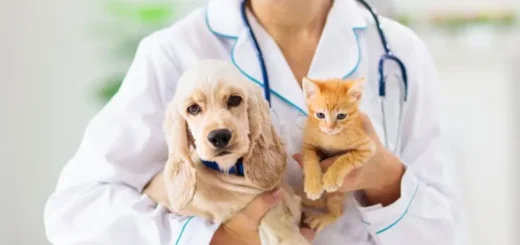















Recent Comments